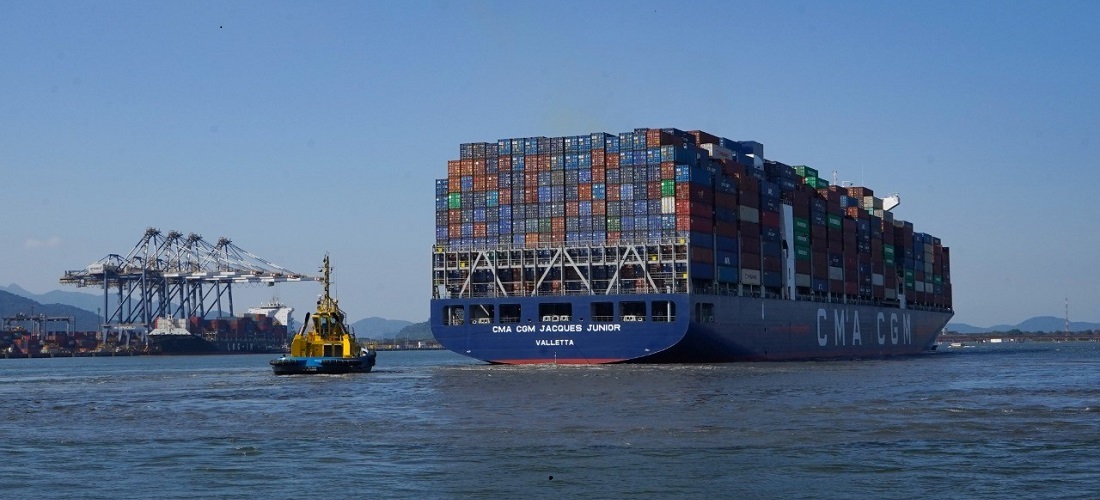
Exports at the Port of Santos are slowed by delays in ship routes
May, 17, 2022 Posted by Gabriel MalheirosWeek 202220
The National Waterway Transportation Agency (Antaq) detected a new and worrying bottleneck for Brazilian exports after meetings with shipowners, port terminals, importers, and exporters. In an interview, the agency’s director, Flávia Takafashi, explained that vessel delays are one of the country’s main problems in maritime cargo transportation.
She explains that the current logistics scenario in Brazil reflects the aggregate consequences of canceled shipments in some ports. “We call this process port omissions,” explains Flávia, explaining that the problem was identified by the working group Antaq set out to analyze the impacts of the container crisis in the Brazilian port sector.
“Ship delays are a problem that started with the lack of containers, which is no longer so relevant for the Brazilian market,” emphasizes the director, explaining that even though Brazil registered a lack of metallic receptacles, the phenomenon was less intense here than in other countries.
According to Flávia, the container lines at Brazilian terminals are pre-scheduled, but even so, they started to suffer delays. “There were terminals that were registering 90% of delays. In other words, 90% of what arrived at the terminal was outside the initially established schedule,” she emphasizes.
In general terms, an average of 60% to 70% delay was observed in container shipping lines in Brazilian ports. “This creates a bottleneck because, sometimes, a ship arrives at the moment that, in theory, the port would be the docking another vessel.”
In addition to delays creating congestion at ports’ berths, yards are also affected. “They need to reschedule operations because of the delays,” says Flávia. However, the director points out that delays can create an even greater inconvenience. According to her, the most severe cases happen when the delay is considerable. “In these cases, a vessel may have to skip a certain port to continue the journey in a somewhat timely manner.”
When such a thing happens, the items that the vessel would have transported end up not being transported at all. “It stays on hold until the next time the ship calls, with the risk of the port being omitted once again given how recurrent this problem has become,” she says, commenting that this situation leads to the accumulation of cargo at ports, hampering the receipt of new products since the terminals are full.
Santos
After the conversations with the representatives of the port sector, Antaq’s task force is analyzing the data collected in each of the 19 terminals so it can soon disclose information in more detail. However, Flávia stated that it is possible to get a glimpse of the situation in the Port of Santos.
“We know that the Port of Santos has a different weight to the Brazilian economy. So, naturally, we notified that few lines skip the Port of Santos,” emphasized her while explaining that the port complex has a large capacity for receiving cargo. However, the impact also reached Brazil’s largest port.
“Today, speaking of Santos, we can say that it also suffered from the increase in the number of omissions and delays (of ships). But the port complex as a whole, not the specific terminals, tends always to receive a large capacity and have a smaller omission selection”, she explains.
According to Antaq’s director, this is due to the complex’s capacity and the need for ships to stop in Santos first “to lighten loads and go to other ports of lesser capacity.”
Source: A Tribuna
To read the full original article, please go to:
-
Ports and Terminals
Nov, 28, 2019
0
Port of Itajaí receives 28th GM car vessel
-
Dec, 16, 2021
0
Base text of BR do Mar is approved by the Chamber of Deputies to encourage coastal navigation
-
Ports and Terminals
Jun, 14, 2024
0
São Paulo governor promises Santos-Guarujá tunnel environmental licensing ready by year’s end
-
Ports and Terminals
May, 22, 2023
0
Port terminals in Alagoas and Rio Grande do Sul authorized for auction by ANTAQ

